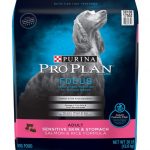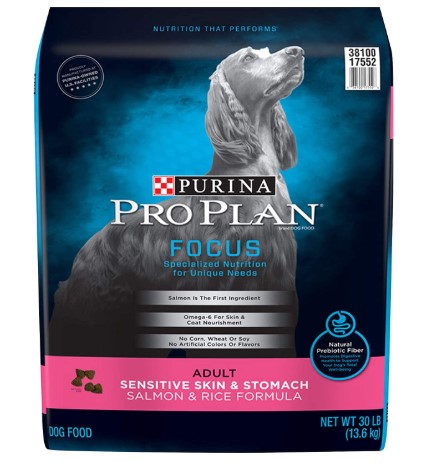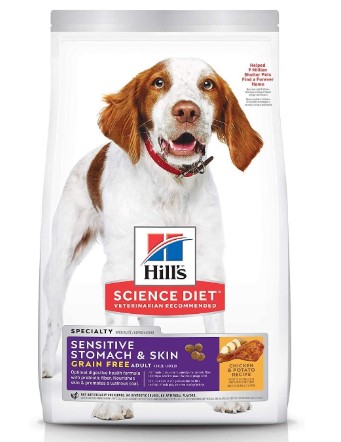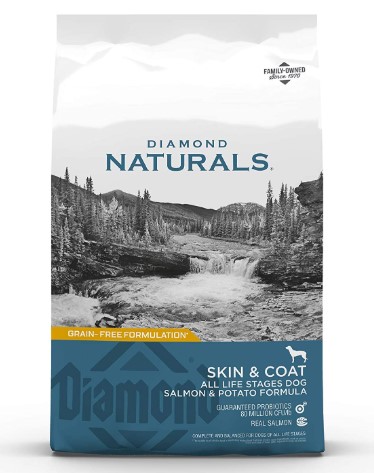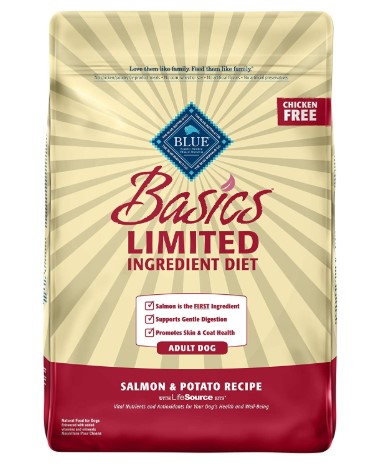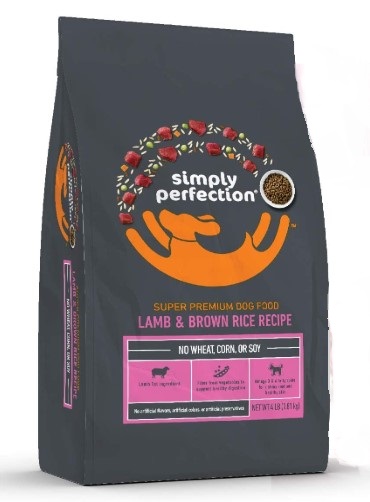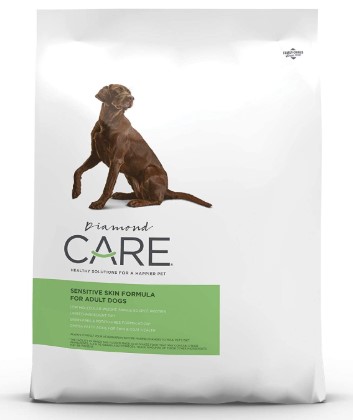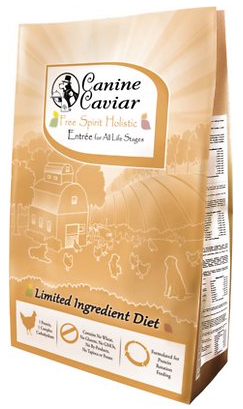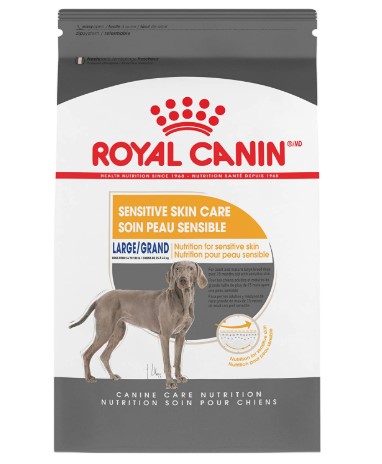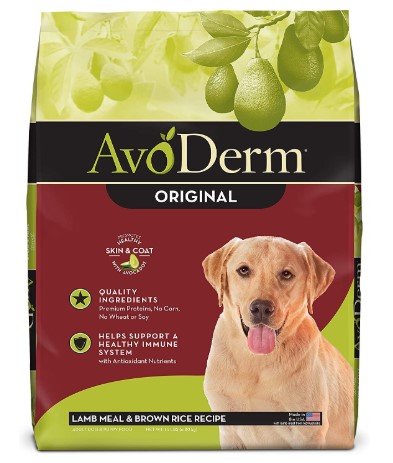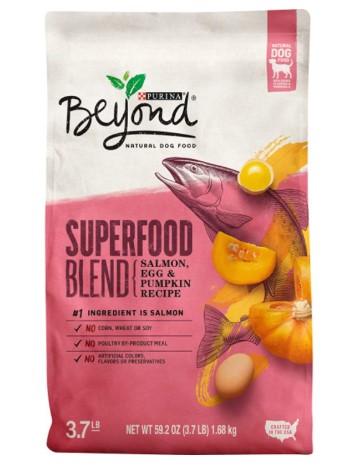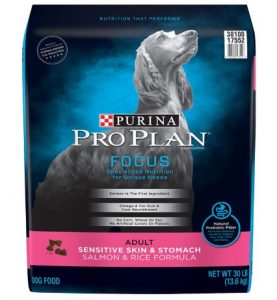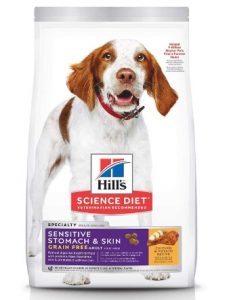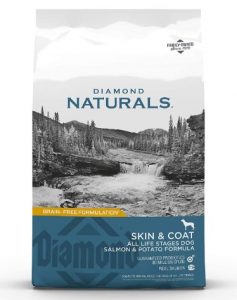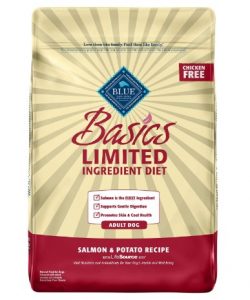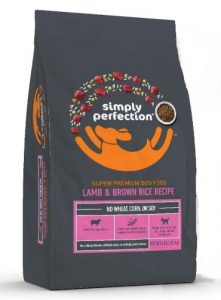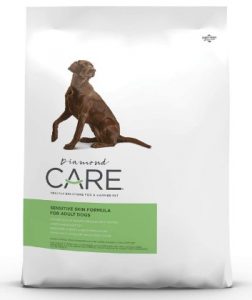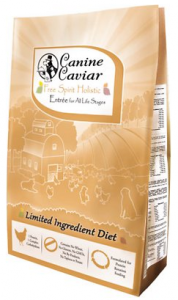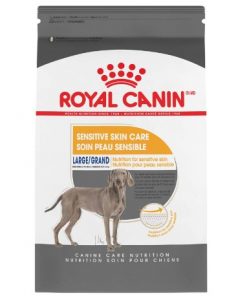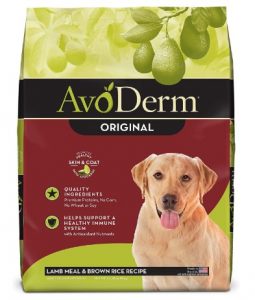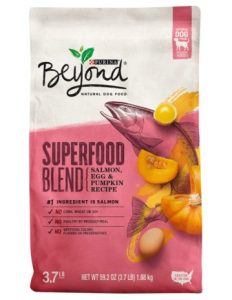Common Dog Allergies
Besides some constituents in dog food, other factors trigger allergies in dogs. Pet prescription drugs may foster allergic reactions in some pets, hence a vital consideration to make. Pet cleaning substances such as shampoos, pests such as fleas, dust, and industrial allergens are other factors that cause common allergies in dogs.
How to Test Food Allergy for Dogs
The most efficient and sure way of knowing whether your pup has a food allergy is taking the clinical approach where a blood test is conducted. However, if you want to avoid the hustle of visiting a vet and what to do it by yourself, you can use a trial diet and exclusively feed it your dog for a short span, approximately a day as this will allow allergic symptoms to show. However, this approach is timely, somewhat unsatisfactory, and may pose a threat to your pup.
Feeding Dogs with Food Allergies – The Process
The recommended way to feed your allergic dog is by giving them hypoallergenic food only. Also, ensure that your pup is not allergic to any of the diet’s constituents. For example, if your pup is allergic to chicken, go for a meal with a hypoallergenic meal with an alternative protein such as salmon.
Recommended Limited Food Ingredients for Allergic Dogs
Recommended food ingredients include vitamins, mineral salts, amino acids, antioxidants, and prebiotics in approved proportions. Plant-based proteins are also ideal as long as the dog is not allergic to food substances.
Reasons Why It’s Difficult to Handle with Dog Food Allergies
Keeping up with dog allergies is not the easiest thing as dogs might have allergies for multiple food substances, and therefore it might be daunting to find the ideal ingredients that the dog is not allergic to. Considering the potential of the severity of dog allergies and that some dogs may be reluctant to eat, this makes it somewhat difficult to handle dogs with food allergies.
Symptoms of a Dog Food Allergy
Symptoms of dog food allergy range from mild to extreme, and these include itchiness and inflammations on the skin, coat infections, swelling of external body parts, vomiting, and diarrhea. Also, a general restlessness could be an indicator of an allergy where the dog shows increased scratching atypical of the norm. Some dogs may undergo hair loss, which results in bald patches on the coat.
Susceptible Dog Breeds to Food Allergies
Pup breeds that are most susceptible to food allergies include German Shepherds, Bichon Frise, Maltese and Golden Retriever. Other breeds that are prone to developing food allergies are Cocker Spaniel, Boxer, Pit Bull Terrier, Rex Cats, and Labrador Retriever. It is vital to take extra caution when feeding these breeds to ensure that they are not allergic to any of the included ingredients.
Most Common Dietary Allergens for Dogs
Food allergens for dogs include meat products such as beef and chicken, dairy products, soy, and wheat. The gluten in some of these food substances triggers a false immune reaction, which is presented as an allergy. Other allergens, though not very common, include fish such as salmon.
Grains and Bugs: The Unfavorable Connection
Some grains, such as soy, trigger allergic reactions for most dog breeds. Similarly, bugs may trigger allergic reactions where the dog becomes restless owing to an itchy sensation on the skin, inflamed parts, and band spots.
Differentiating Between Food Allergies vs. Simple Food Intolerance
Most dog food allergies are consistent with continued symptoms. A dog develops mild or severe symptoms that persist as long as the dog is fed the same food or an alternative with the same ingredients. As for simple food intolerance, the symptoms are often not persistent and are mild in most occasions. After the dog feeds on a given meal, the mild reactions suggesting food intolerance become less pronounced.
Reasons Why Dogs to Develop a Food Allergy
Dogs develop food allergies when their immune system misinterprets food protein substances as a foreign threat rather than a nutritious constituent, and an immune response is triggered. The reaction can be mild in the form of itchy sensation and severe in the form of diarrhea, among other symptoms.
Are Antibiotics Triggers for Allergy?
Yes. Though not on all occasions, antibiotics may cause allergic reactions on dogs, and therefore, proper caution should be taken when administering the drugs.
Instances Where Dogs Develop Allergies
Dogs develop a food allergy when they consume a protein that their immune system falsely perceives as a foreign threat. A counter-reaction is then triggered, and this causes an allergy.
Likelihood that a Dog has a Food Allergy
For most dog breeds, there is a good chance that a dog has a food allergy for at least one food allergen. A dog may be allergic to beef but can consume all other proteins without having any side effects.
What Is Hypoallergenic Dog Food?
A hypoallergenic diet is a dog recipe that does not contain ingredients that pose an allergic threat to a dog. The best dog food for allergies specially manufactured with the right ingredients known to be safe for dogs with food allergies. Once a dog is diagnosed to be allergic to specific food substances, these diets are recommended as a nutritious alternative to ensure the dog’s wellbeing.
Conclusion
Dog food allergies are a major threat to pups, as their severity ranges from mild to severe. Proper diagnosis is essential for determining whether your dog is allergic to specific food substances or not. If some ingredients are not suitable for your dog’s consumption, it is essential to get alternative hypoallergenic food, which will help in not only preventing the allergic reactions but also strengthening the immune system. It is, therefore, essential to check that your choice of food does not contain any substances your dog is allergic to.
In case you suspect a food allergic reaction, conducting a blood test by a vet is the most certain approach to help determine whether your pup is allergic to a given ingredient or not. What is your preferred hypoallergenic food brand? How do you determine whether your pup is allergic to a specific food or not? Share your thoughts in the comments section below; we’ll be glad to check them out!
 Food allergy is among the most common problems dogs are faced with, and this leaves many pet owners unsure of how to go about it. Considering the potential for the severity of reactions, it is vital to ensure that sensitive dogs are only fed with alternative hypoallergenic recipes that do not contain allergens.
Food allergy is among the most common problems dogs are faced with, and this leaves many pet owners unsure of how to go about it. Considering the potential for the severity of reactions, it is vital to ensure that sensitive dogs are only fed with alternative hypoallergenic recipes that do not contain allergens.

